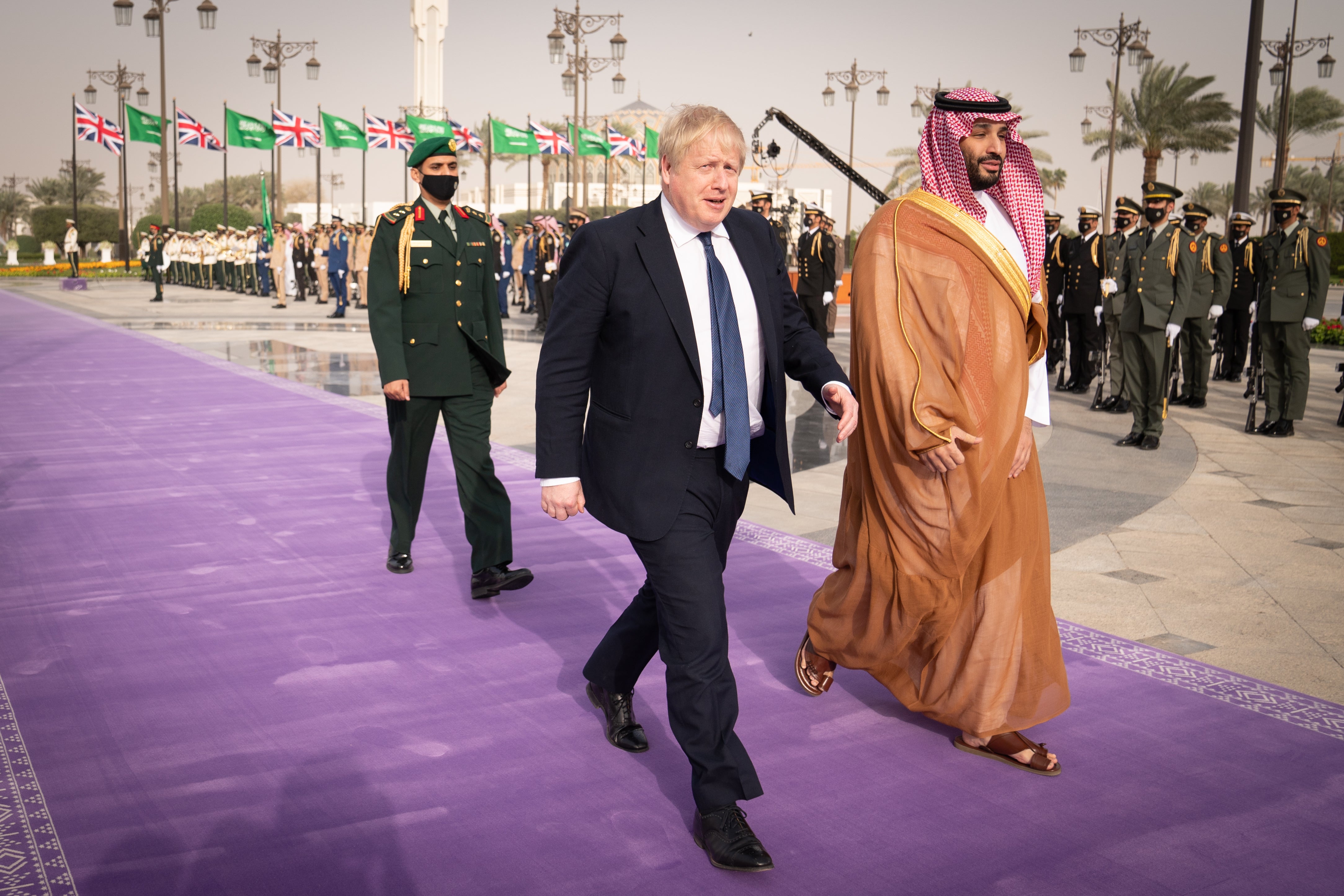UK to begin negotiations for improved trade deal with Gulf states
Trade with the Gulf Co-operation Council totalled £33.1 billion in 2021, making it the UK’s seventh largest trading partner.

Your support helps us to tell the story
From reproductive rights to climate change to Big Tech, The Independent is on the ground when the story is developing. Whether it's investigating the financials of Elon Musk's pro-Trump PAC or producing our latest documentary, 'The A Word', which shines a light on the American women fighting for reproductive rights, we know how important it is to parse out the facts from the messaging.
At such a critical moment in US history, we need reporters on the ground. Your donation allows us to keep sending journalists to speak to both sides of the story.
The Independent is trusted by Americans across the entire political spectrum. And unlike many other quality news outlets, we choose not to lock Americans out of our reporting and analysis with paywalls. We believe quality journalism should be available to everyone, paid for by those who can afford it.
Your support makes all the difference.Talks on a trade deal between the UK and six Gulf nations that could boost the UK economy by up to £1.6 billion a year will kick off on Wednesday with a meeting in Saudi Arabia.
Trade Secretary Anne-Marie Trevelyan will meet representatives of the Gulf Co-operation Council (GCC) in Riyadh to begin negotiations on a deal with the bloc.
Trade between the UK and the GCC – which includes Bahrain, Kuwait, Oman, Qatar, Saudi Arabia and the UAE – is already worth £33.1 billion, making it the UK’s seventh largest trading partner, and the bloc’s demand for international goods and services is expected to increase 35% in the next 13 years.
Ms Trevelyan said: “This trade deal has the potential to support jobs from Dover to Doha, growing our economy at home, building vital green industries and supplying innovative services to the growth.”
But Paul Nowak, deputy general secretary of the Trades Union Congress, warned against the move on account of the Gulf states’ “appalling” human rights record.
The UK is expected to pursue cuts to tariffs on British exports to the Gulf, particularly in the food and drink sector. UK food and drink exports to GCC countries were worth £625 million in 2021.
The Government will also seek to improve access for hi-tech industries including green technology to help the GCC transition away from reliance on fossil fuels.
This could include reducing the 15% tariff on UK wind turbine parts in order to help the UAE reach its target of generating 50% of its electricity from renewable sources by 2050.
Stephen Phipson, chief executive of manufacturers’ organisation Make UK, said: “We welcome the launch of free trade negotiations with the Gulf Co-operation Council, strengthening trade opportunities which will ensure that British manufacturing benefits from future positive flows of goods and services into the Gulf region.
“It is also extremely helpful that the UK and GCC are committee to work towards seeking the opportunities from ‘green innovation’, which will bring significant opportunities for Britain’s innovative renewable energy companies which are already leading the way in this area of global concern.”
But unlike recent trade deals with New Zealand and Australia, the UK is not expected to pursue agreements on advancing gender equality as part of its negotiation with the GCC, instead raising human rights issues through other avenues.
Negotiations will also look to increase investment opportunities between the UK and the Gulf, with GCC investments in the UK supporting more than 25,000 jobs in 2019 and the new deal expected to boost local economies in the North and the Midlands.
For the service sector, UK negotiators will seek to improve transparency and consistency of regulation, which has previously been a sticking point, particularly for small and medium-sized businesses.
Sanjay Aggarwal, co-founder of small Liverpool-based exporter Spice Kitchen, said: “It’s so important for our business to be linking with the GCC and enables us to grow rapidly in exciting ways we never thought possible.
“We are in the process of identifying retailers in the Gulf, including the UAE, Saudi Arabia and Qatar.”
But Mr Nowak said the Government should not “entertain” a deal.
“The Gulf states’ appalling record on human rights and workers’ rights is no secret. And yet the Government is rushing into trade talks, no questions asked,” he said.
“Ministers should not entertain a deal with the Gulf states.
“Banning trade unions, forced labour, severe exploitation of migrant workers and other labour rights abuses are all widespread – as are attacks on women’s rights, LGBTQ+ rights and the oppression of marginalised communities.
“Time and time again, ministers have turned a blind eye to fundamental rights abuses in a bid to secure trade agreements.
“Enough is enough. The UK Government should be using its leverage on the global stage to ensure respect for fundamental workers’ and human rights.
“And we need ministers to start meaningfully consulting with trade unions during trade talks – this is the only way trade deals will work for workers in the UK and globally.”